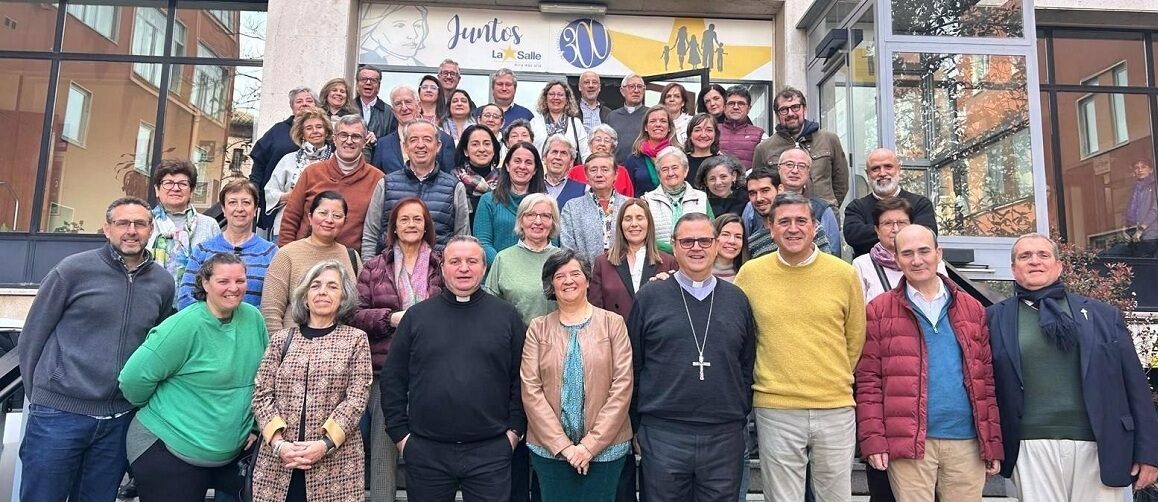Hacemos llegar el artículo que Cristina Manzanedo nos ha enviado sobre refugiados y medios de comunicación, un tema por el que se interesaron en la mesa redonda de las jornadas del sábado 26:
“How media shapes the ‘refugee crisis’
We soak up what media platforms report without much of an analytical rigour most of the time. You might intervene by stating that you always seek information from more than one channel, that you consult print media, TV and online sources alike. But is that enough to provide us with a critical perspective?
Especially in the context of the so-called refugee crisis I would argue that this is not enough. We are constantly exposed to a politicised migration discourse but we do not realise how protracted our information actually is. This becomes visible in the recurring rhetoric of the refugee discourse which is based on simple catchphrases.
Since 2014, when the influx of refugees from Syria into the EU reached a noticeable level we speak of a refugee crisis to which the EU has to find a comprehensive political solution. During the peak months in the fall of 2015 the refugee-streams put pressured Europe and its borders so much that German Chancellor Angela Merkel revoked the Dublin Regulation announcing that all Syrian refugees are welcome in Germany.
Lately xenophobic statements by radical right parties in Europe found public approval and multiple Member State governments openly stated their unwillingness to accept refugees in response to a proposed EU-coordinated resettlement effort. In 2016, the EU-Turkey deal contributed to the significant reduction of refugee arrivals in Greece and the crisis appears to be tamed. The EU announced as much in recent weeks while emphasising that a crisis of such scope has never been resolved at this speed before.
If you felt reminded of something while reading this that is because you probably are. It comprises some pieces of information that major media outlets put forth during the last two years. It also used the familiar connections that we associate with the topic of refugees.
But are we critical observers if we realise that this discourse is guided by certain key words and a set of recurring linkages between refugee flows and political decision making? Being able to see that this discourse is covered by the mainstream media within set boundaries is a valuable first step. This alone is insufficient, however, to provide a well-founded opinion about the topic of migration to Europe and the global phenomenon of migration in general.
We need to look beyond the information that we receive to establish well-founded opinions on refugees. That includes taking a minute to understand why information is repetitive and exclusive in day-to-day media coverage.
Even when we pick up the latest news about the state of the war in Syria and the political debates that the EU engages in with third countries, we are faced with the trap of being information takers only. All media outlets are selective. The news that we are fed are the most shocking, the best sells or simply the ones to which vested interests are attached.
What we do not receive is everything outside of that spectre. We are not told about Afghan, Iraqi and Somalian refugees who, in many cases, have well-founded asylum claims just like refugees from Syria. Nonetheless, their stories are often not heard as their countries are perceived safe in comparison to Syria.
This results in a constant bias. We do not receive a full account of opinions on a particular topic such as migration, but only a pre-selected fraction. Without keeping that in mind we are victims to the fallacy of drawing incomplete conclusions. They might be adequate if we consider the fraction of what we are exposed to as the big picture, but as soon as we start to make generalisations and perceive the information we have as equivalent to all there is we merely further the aforementioned bias.
The results of that are lethal. Migrants from many countries other than Syria are deprived of the legitimate opportunity to launch asylum applications. Xenophobic fears reach heights that are unheard of since the end of World War II. Likewise the political capacity of the EU is confined to making suggestions for common policies that highly restrict refugee protection and externalising the responsibility for refugees to Turkey and other third countries.
While these policy-related obstacles are problematic already, the effect of a narrow migration discourse is even more critical at the level of communication between media and the European people. It becomes more and more obvious that the refugees who have reached Europe so far are in need of protection irrespective of their origin.
Many NGOs have realised that and use the term forcibly displaced persons instead of refugees or migrants to indicate that it is indeed a matter of individual circumstances that determines whether a person requires international protection. The fact that this terminology has not been adopted in media reports and the news shows that the current discourse on migration lacks a global dimension and a sense for humanitarian considerations.
It is a matter of recognising that there are more global dimensions to migration than those that media covers in Europe today. It is maybe easiest to put it in this message: Due to the ongoing war every Syrian migrant is a refugee, but not every refugee in the world at this time is a Syrian. The issue of forced migration is not confined to Syrians only and likewise not to people who arrive in Europe. In fact, forced migration is a global phenomenon of which Europe has been largely spared for many years.
If the discourse on forced migration in the EU is to evolve and public opinions are to be taken seriously, then this requires an increased level of critical thinking from every individual.
By Max Olgemoller, JRS Europe Advocacy and Communications Intern”
Información extraída de: https://www.facebook.com/notes/jesuit-refugee-service-europe-jrs/how-media-shapes-the-refugee-crisis/1674867299440548



